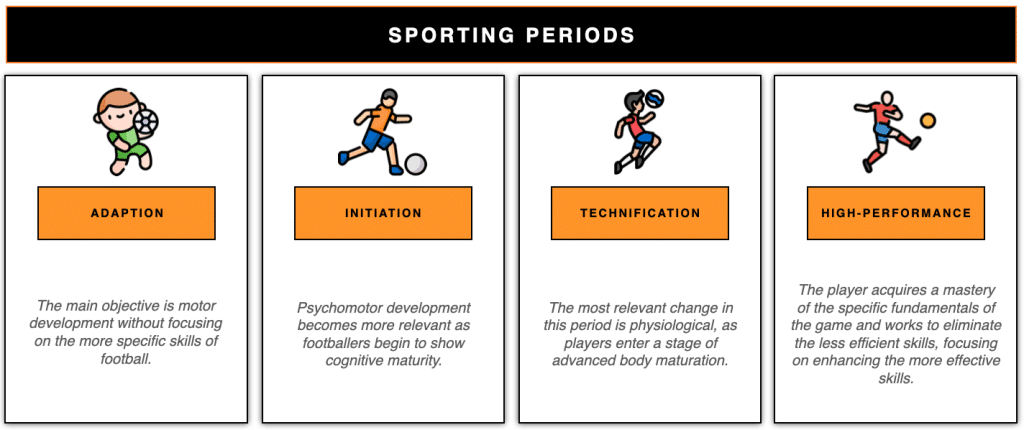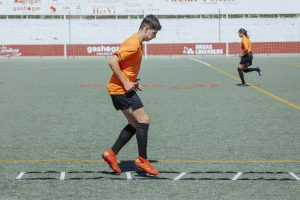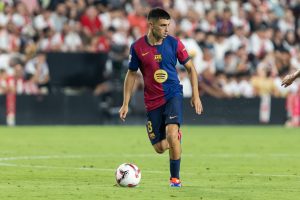The sporting life of a football player is divided into different periods, each with its own specific objectives and characteristics, from the moment they start until they reach high-performance, which we could classify as the peak of their career.
Before reaching this stage, the player must go through three previous periods that we at the MBP School of Coaches define as:
Adaptation: This is the introductory phase in the individual’s sporting life. Here, the main focus is on motor development without delving into the more football-specific skills. It is crucial that the player relates to the sporting environment, encouraging the development of various motor structures. This is a phase where the focus is on exploration and familiarisation with the sport, promoting general coordination and basic physical adaptation.
Initiation: This period marks a significant change from the previous one. Psychomotor development becomes more important, as footballers begin to show cognitive maturity. In this phase, the player begins to internalise the more specific skills of football, allowing for a more focused training approach on basic and fundamental techniques of the sport. Basic tactical concepts are introduced, and a better understanding of the game is aimed for
Technification: The main change in this period is physiological, as players enter a stage of advanced body maturation. During this time, the individual perfects individual actions and begins to understand football from a more global and collective perspective. Work is done on optimising advanced techniques and decision-making on the pitch, preparing the player for more complex and demanding situations in the game.
High-Performance: Once this period is reached, the individual must maintain continuous individual development within the football collectivity. The player acquires a mastery of the specific fundamentals of the game and works to eliminate the less efficient competencies, focusing on enhancing the more effective skills. Here, the competition factor becomes the main focus, with an emphasis on tactical, mental and physical preparation to maximise performance in the game.
Conclusion
A player’s sporting life is structured in a series of periods that favour his or her integral development. It is essential that these are integrated with the different recreational stages to ensure an optimal teaching-learning process. Each stage prepares the player for the next, forming a solid base that culminates in high-performance, where competition and specialisation reach their maximum expression.
Picture 1: Source MBP School of Coaches
Do you want to be an expert in formative football?
In the Expert in Youth Football online course, you will learn to identify, understand, and transport to the sporting reality the psycho-pedagogical principles of football training in the formative stage. You will learn the MBP methodology in depth, mastering how to plan, according to the evolutionary stage of your players, the different content and concepts throughout the season, and design and implement the different didactic strategies that represent them.
You will understand how to integrate the role of the coach in the formation of values. You will also learn to adopt an evolutionary vision of physical preparation, focusing on the psychomotor development of players, to contextualize the conditional work within the technical, tactical, and collective game training. You will also be able to identify the bases of sensory training and its operation from evaluative techniques focused on the creation of metacognitive learning.
Ultimately, you will learn to observe the game with tactical intentions and to use a game model suitable for all the different youth ages in football.
Click here for more information



